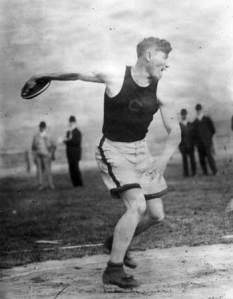 Whether you like it or hate it the London Olympics is nearly upon us. The preparations for the games have been staggering. A most noticeable fixture has been the massive marketing campaign alongside importance given to commercial interests. Redevelopment and sustainability has also been considered a high priority. Of the Games themselves 8 million tickets were made available to view the events of which there are 26 sports and a total of 39 disciplines (originally there were to be 28 sports but baseball and softball were later dropped). It will be the first time that women’s boxing is included with 40 athletes competing in 5 different weight classes. In total 161 countries (or 204 NOCs or National Olympic Committees) are expected to participate. The Paralympic Games have 20 sports and 21 disciplines. It will be the second time (the first being the 2000 Paralympics in Sydney) in which athletes with intellectual disabilities will be authorised to compete. 18 countries are expected to compete with the Solomon Islands making its debut.
Whether you like it or hate it the London Olympics is nearly upon us. The preparations for the games have been staggering. A most noticeable fixture has been the massive marketing campaign alongside importance given to commercial interests. Redevelopment and sustainability has also been considered a high priority. Of the Games themselves 8 million tickets were made available to view the events of which there are 26 sports and a total of 39 disciplines (originally there were to be 28 sports but baseball and softball were later dropped). It will be the first time that women’s boxing is included with 40 athletes competing in 5 different weight classes. In total 161 countries (or 204 NOCs or National Olympic Committees) are expected to participate. The Paralympic Games have 20 sports and 21 disciplines. It will be the second time (the first being the 2000 Paralympics in Sydney) in which athletes with intellectual disabilities will be authorised to compete. 18 countries are expected to compete with the Solomon Islands making its debut.
Go back exactly one hundred years and the story is very different, although increasingly recognisable as the event to be held this summer. The 1912 Olympics held in Stockholm saw the participation of just 28 nations and 2,508 competitors (of which only 48 were women). There were almost half the games of the 2012 Olympics available (14 sports in all broken down to 102 events). The games saw the debut of Japan and thus represented the first time all five continents participated. This was also the first time that the modern pentathlon, women’s swimming and women’s diving became a fixture of the event. There was, as yet, no Paralympics (that would not be introduced until 1960 although an International Wheelchair Games has been held since 1948). Modernisation was strong in other areas too; this was the first time that automatic timing devices were used for track events as well as the photo finish and public address system.
Changes were happening on a more individual level as well as our podcast taken from the Metropolitan History seminar in February attests. Dr David Day (Manchester Metropolitan University) has looked into the professionalization of coaches and trainers employed for the Olympics amateur athletes, especially in the US. This was considered bad play in Britain, where Gentlemen sportsmen saw fair play, participation and volunteerism as essential attributes of what the games should all be about. However, as Day argues, the picture in Britain was not quite that clear cut. Although monetary gain was kept to a minimum many amateur athletes and indeed the Olympic committee for Britain sought the aid of high profile amateur and professional coaches and trainers. Slowly the desire to focus on taking part over winning was to fade as the desire to win and advance increased with recognition that professional trainers could improve athletic ability.
To listen to this podcast click here.
